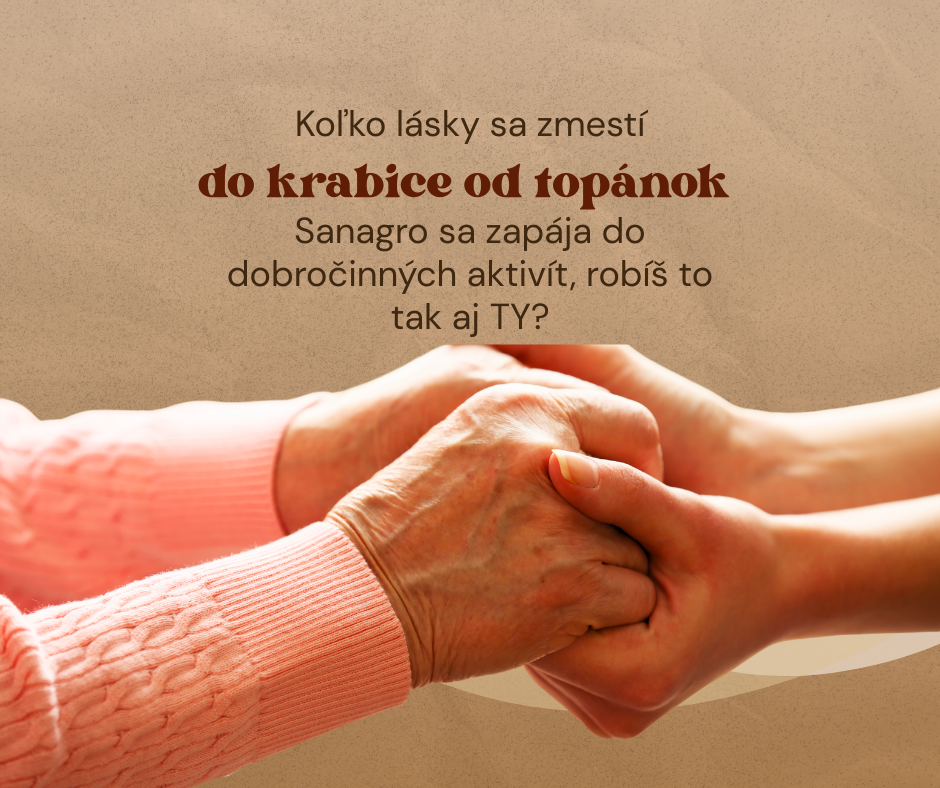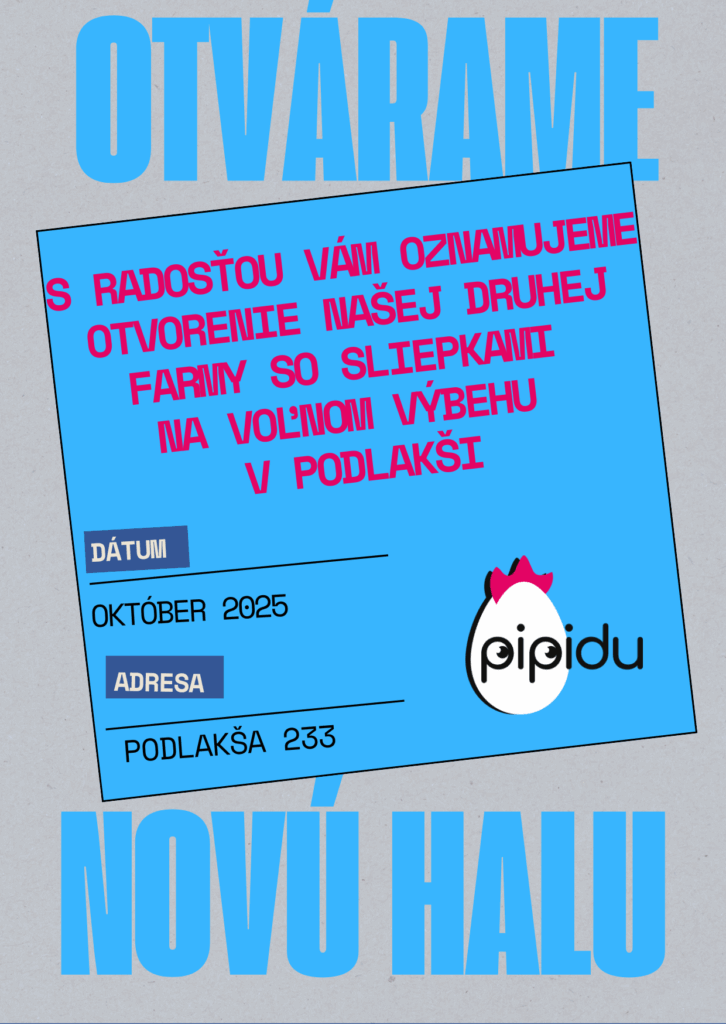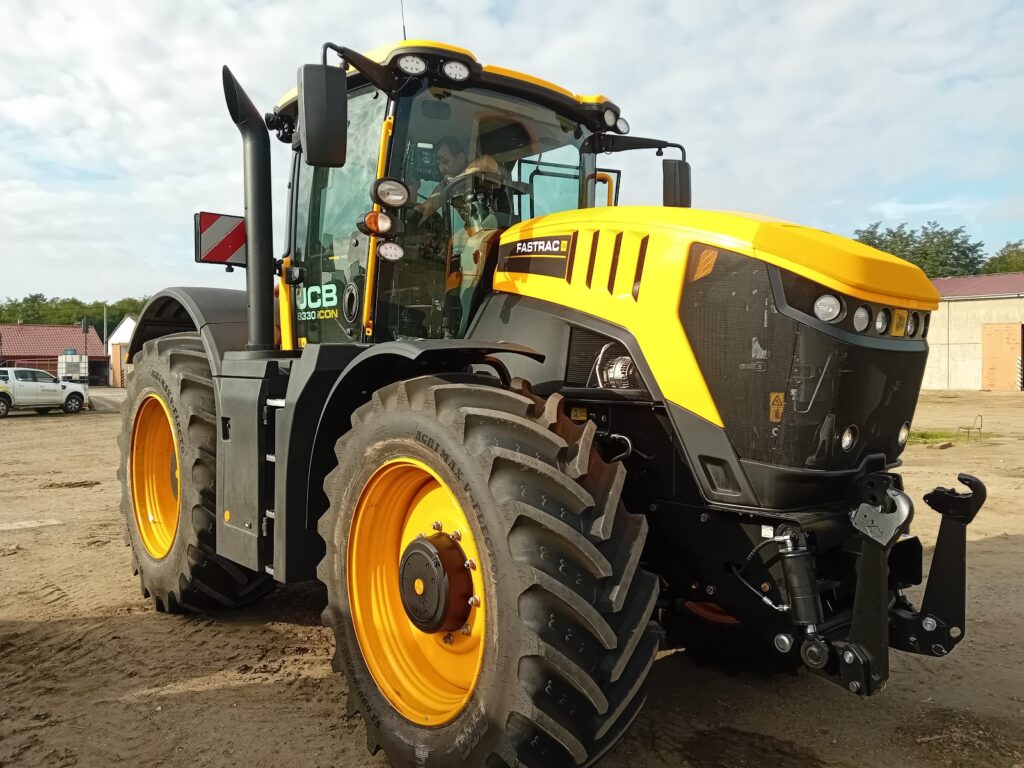SANAGRO manages two organic farms in Záhorie - BOS-POR Agro and EUROAGRO
- Growing of genetically modified crops is on the rise worldwide
- Slovaks still look more at the price when buying food
- SANAGRO, which also farms on organic farms, hopes for a positive change in the future
On the one hand, a return to naturalness, on the other, the modification of DNA to create resistant crops. Farms around the world are divided not only by what they grow, but also by how they grow it. Modern organic farms in Slovakia, however, have created a unique combination, using modern technology and preserving the natural principles of cultivation.
Genetically modified organisms rise in popularity
GMO is the modification of the DNA of crops and organisms so that they are more resistant to pests and other influences, or for example do not transmit diseases. That is why the number of areas in the EU growing this type of crop has quadrupled since 1996.
The top countries in the world that use GMOs include the USA, China, Argentina, Canada, Australia and Mexico. Slovakia was one of the first EU countries to cultivate GMOs.
The number of crops and hectares is increasing, but scepticism still prevails in the population and people are afraid of GM crops. They are resistant and therefore easier to grow, but on the other hand, they are not natural and that is a problem.
Biopharmaceuticals are moving in a completely different direction
A different type is the organic approach, i.e. the use of purely natural substances in breeding or cultivation, without chemicals and pesticides. Organic cannot be just anything. The designation is preceded by a registration process that includes special checks or a two-year conversion period.
In 2019, there were 13.8 million hectares of organic farms in the EU, which is 8.5 % of the total land area. When looking at organic land as a percentage of country size, Austria, Estonia and Sweden have the most of it. However, in terms of sheer area, Spain has the most organic soil.
Slovenia, the Netherlands and Croatia, for example, have less organic soil than Slovakia. Since 2012, the percentage of organic farms has increased by 46 %, which is a very positive figure.
One of the largest organic farms in Slovakia is owned by SANAGRO, which has been operating on the Slovak market since 2012 and is one of the largest producers in the field of crop production in the country.
Interesting facts about the company SANAGRO:
- owns 11 farms in western and central Slovakia
- farms almost 19 000 hectares of land
- produces 13 000 000 litres of milk and 50 000 tonnes of cereals, oilseeds and fodder per year
- recorded sales of EUR 1.5 million in 2019
During its existence, the company has invested more than 3 million euros in the modernisation of farm technologies and considers its mission to promote responsible and sustainable agriculture. This includes organic farming in different regions of Slovakia.
SANAGRO manages two biofarms in Záhorie - BOS-POR Agro and EUROAGRO. BOS-POR Agro currently grows sunflower, peas, winter wheat, food rye, spelt, oats, barley and animal feed in its fields.
Whether organic farms will expand depends on a number of factors, but SANAGRO plans to continue its organic approach. Last year, five of their farms were even certified GMO free, which means that they feed their animals exclusively with GMO-free feed, guaranteeing the highest quality milk.
Despite the quality of local crops, the main price for Slovaks is still
Domestic consumers are increasingly reaching for quality food grown on Slovak organic farms. However, their share is still very small. The main criterion remains price, which depends not only on the ecological mindset but also on the standard of living and what people can afford.
"Consumption of organic and eco products in Slovakia is still low. Almost all of what we grow on our farms goes abroad. The only consumption is actually organic sunflower, which we supply to a Slovak producer of organic sunflower oil. This is a paradox, because, for example, many organic products from Austria may actually be made from Slovak raw materials, but they are made abroad."explains Tomáš Kohút, CEO of SANAGRA.

Food from abroad may also be perceived as better by domestic consumers, and in many cases this may not be true. For example, the Dutch use a lot of chemical sprays, while being perceived as very organic grain growers.
At the same time, importing food from long distances has several disadvantages. One negative is the large carbon footprint that importing food from abroad produces. All of this also plays into the hands of domestic products. However, at the moment, they are not able to match the prices of those from abroad.
Young people don't want to become farmers, despite modern technology
Only about 4 % people are currently working in Slovak agriculture. A lot of young people could drive 300 000 autonomous tractors.
This is a job that literally doesn't always smell good, but some positions do offer interesting valuations. Plus, this sector will always be here because people have always needed and will always need to eat. Agriculture is currently changing and new technologies may make it a more attractive sector for young people as well.
"Today, it is common to have tractors that are equipped with either GPS navigation or even autonomous driving. And this is closer to young people rather than old people. Before, for example, tractor drivers had to follow the track themselves, now it's up to the tractors and the drivers just make the corrections. So our tractor driver has listened to all the podcasts today," says Kohut. Apart from technology, the sector's attractiveness can be boosted by support from above.
The future of the domestic agri-sector depends on the EU and in-country support
However noble the intentions of SANAGRA and other smaller farmers may be, the entire agri-sector is dependent on subsidies, whether from the European Union or specific governments.
Despite the EU's efforts towards a common agricultural policy, there is a big difference in the level of contributions. This is what causes the biggest problems, whether it concerns the way in which produce is grown, the quantity of home-grown produce on the shelves, its price, or the overall popularity of farming among young people.
How can this be improved? Ideal e would be when the contributions were equalised. Slovakia has the fifth lowest subsidies in the EU and receives a EUR 5 per hectare contribution from the government. Compared to this, the Austrians, for example, are much better off - they receive up to EUR 100 per hectare from the government. Our neighbours, the Czechs, have a subsidy of EUR 54.
e would be when the contributions were equalised. Slovakia has the fifth lowest subsidies in the EU and receives a EUR 5 per hectare contribution from the government. Compared to this, the Austrians, for example, are much better off - they receive up to EUR 100 per hectare from the government. Our neighbours, the Czechs, have a subsidy of EUR 54.
"That's why I say it's actually a sprint that can't be caught up, because others start in the middle or straight at the end of the track," Kohút explains the situation.
Despite the current situation, SANAGRO hopes for a bright future for Slovak agriculture and is open to cooperation with other farmers. The future of Slovakia may well lie in locally grown raw materials that are not exported but used for the production of domestic products or go directly to the shelves of shops, where they will be able to compete in price with the current foreign ones. Because the quality is there, we just need to keep it local.
Author Tamara Antalová
Source: Startitup.sk






